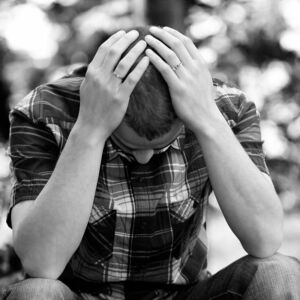News
Denmark’s most depressing jobs
This article is more than 10 years old.
New study reveals cashiers, cleaners and kitchen assistants to be among the most depressing occupations

Bullying in the workplace is more likely to lead to risk of suicide (photo: Sander van der Wel)
Cashiers, cleaners, kitchen assistants and teachers all have at least one thing in common ‒ they are all jobs with higher than average depression rates, according a new study by the National Research Centre.
The study, which surveyed 27,000 Danish employees, asked participants to rate how often they experienced 12 different depressive symptoms, including sadness, a lack of energy and a bad conscience. Answers were rated on a scale between 0 and 50 points, with 0 being the lowest.
According to the study, which surveyed all occupational groups, Danes have an average depression level of 8.3 ‒ the same level as in 2012. In some industries, the number is significantly higher. For example, 11.2 for cashiers and 10.1 for cleaners.
Women more susceptible
“Women tend to exhibit more symptoms of depression. Those coming from a low socio-economic position also have a higher chance of having depressive symptoms,” Ida EH Madsen, a senior researcher at NFA, told finans.dk
“Our studies seem to suggest that working with other people can increase the risk of developing mental illnesses requiring treatment. The emotional demands of the work also plays a big role in depression rates,” she continued, stressing that it is difficult to draw firm conclusions due to the fact that it’s difficult to gauge how people feel.
Jobs with highest rates of depression:
‒ Cash assistants
‒ Cleaners
‒ Social sciences academics
‒ Kitchen assistants
‒ School teachers
‒ Food and beverage industry employees
‒ Passenger service staff
‒ Special educators
‒ Client information clerks
‒ Pharmacy technicians and phlebotomists










































